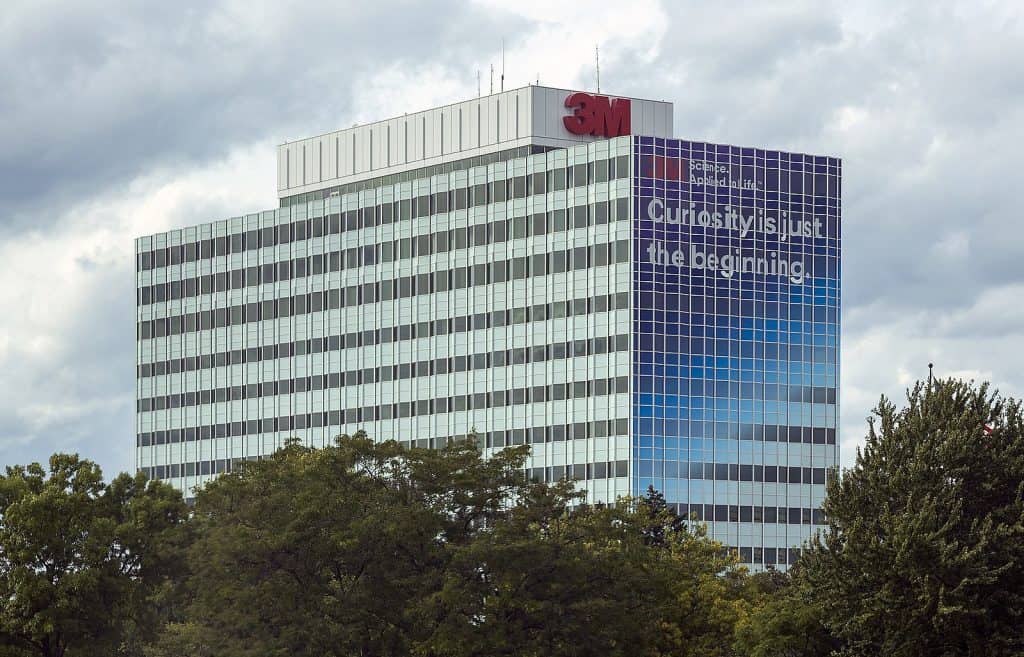
The weekly trade report with L.C.
The administration’s attack on 3M two weeks ago has been resolved, but the Trump tariffs on medical imports continue, despite the shortages and unneeded expenses they are occasioning.
The administration’s quarrel with 3M was amicably resolved early last week. The famous Minnesota company said in a press release on April 6th that 3M and the Trump Administration “are announcing a plan to import 166.5 million respirators over the next three months,” mainly masks made in the company’s China factories. These will supplement “the 35 million N95 respirators we currently produce per month in the US.” The pace of production will be stepped up, the company reports. Importantly, “The plan will also enable 3M to continue sending US produced respirators to Canada and Latin America.”
Crisis avoided
The company is the sole supplier of masks to those two destinations. For this reason, the Trump administration’s ban on 3M’s exports had threatened to provoke both a humanitarian and a diplomatic crisis. Canadian officials undertook multiple conversations with their US counterparts over the weekend, expressing outrage that Canada was included in the export ban. That pressure proved effective.
An editorial in the April 13th Wall Street Journal noted that
When President Trump singled out 3M for exporting some of its N95 respirator masks, the American company instantly became the face of corporate profiteering at the expense of ordinary Americans….The president says he’s satisfied with the deal. But the question is how fair this intervention was in the first place…We’re glad the White House and 3M have worked it out. But where does 3M go to get its reputation back?
Tariffs continue
Meanwhile US tariffs, including those imposed under Sections 301 and 232, have reduced the supply of urgently needed medical items and raised their cost to doctors, hospitals, local government, and consumers. In a separate April 13th news article, the Wall Street Journal listed product shortages that have been created or worsened by the Trump tariffs (partial list):
- hand sanitizer;
- disinfectants including glutaraldehyde, which is exceptionally “effective at killing the coronavirus”;
- sanitary wipes, the production of which in North Carolina is being significantly impeded by the tariffs on viscose ray fibers;
- thermometers;
- plastic face shields;
- textile face masks;
- protective surgical garments;
- ventilators;
- GoPro cameras for training doctors to use ventilators;
- batteries for medical equipment to monitor patients; and
- hospital bed sheets.
Good intentions that misfired, as predicted
The president imposed the tariffs thinking they would help shift production from China to the US, but instead they have worsened a major health crisis. Suppliers now realize only too well that in the future they must create more diversified supply chains. They don’t need government punishing their ability to produce domestically in the meanwhile. The tariffs have not only hurt many companies, they have also worsened the health emergency and the country’s financial health. The president’s sweeping tariffs and exit from the Trans-Pacific Partnership were bad policy in the first place, but their continuance under present circumstances is policy folly raised to a higher power.
Hawley and FEMA
And as if these difficulties aren’t enough,
- Protectionist Republican Sen. Josh Hawley (R-MO) is calling for legislation requiring strong local content rules for the production of medical-related products, something that would not only likely violate the WTO Government Procurement Agreement but complicate supply chains for US manufacturers and provoke foreign retaliation. (Although apparently unrelated, Sen. Hawley bears the same surname as Oregon Republican Congressman Willis Hawley, who co-sponsored the protectionist Smoot-Hawley Act in 1930.)
- On March 7th the administration invoked the Defense Production Act in instructing the Federal Emergency Management Agency (FEMA) to impose new restrictions on the export of five types of personal protective equipment (PPE). The ruling requires that “before any shipments of such covered materials may leave the US, CBP [Customs and Border Protection] will detain the shipment temporarily, during which time FEMA will determine whether to return for domestic use, issue a rated order for, or allow the export of part of all of the shipment…. [N]o shipments of such designated materials may leave the US without explicit approval.” A White House statement said the order “will help ensure that needed PPE is kept in our country.” The president told reporters on April 8th, “We need the masks. We don’t want other people getting it.”
FEMA has little experience with export controls or the diplomatic expertise required so as to not create foreign policy crises through its export decisions. The bureaucratic delay the new policy guarantees will also kill people, just as the slow-motion bureaucracy at the CDC and FDA already has.

Leave a Reply